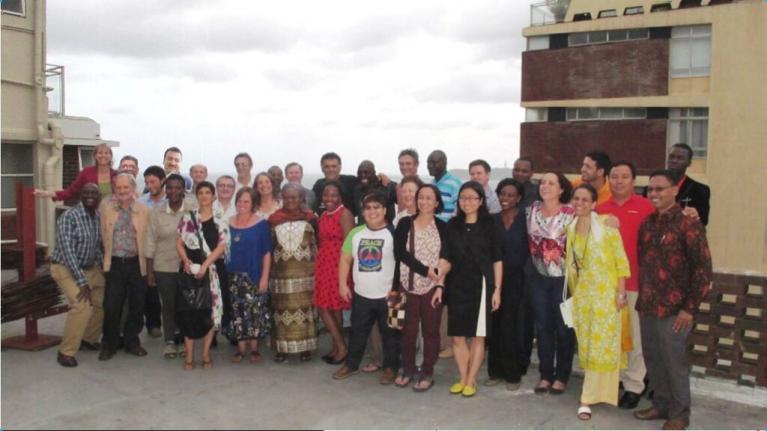Latest Resources

18 October 2017
Farm Input Subsidies and Civil Society’s Position in Mozambique
This statement represents the position of civil society in Mozambique on farm input subsidies.

16 October 2017
Civil society in Mozambique statement on farm input subsidies in that country
This statement represents the position of civil society in Mozambique on farm input subsidies in that country.

23 August 2017
OPEN LETTER TO AFRICAN BIOSAFETY REGULATORS
OPEN LETTER TO AFRICAN BIOSAFETY REGULATORS Do not allow Africans to be used as guinea pigs for untested high-risk new GM technology The Alliance for Food Sovereignty in Africa calls for an immediate ban on the importation into South Africa of Monsanto’s high-risk second-generation gene-silencing genetically modified (GM) maize destined for human consumption. AFSA rejects […]

14 March 2017
ACB Submission to Competition Commission on Bayer Monsanto merger
This submission is made by the ABC because of serious public interest concerns about the proposed merger between Bayer and Monsanto. This merger is occurring in the context of other related mergers in agricultural input supply, between ChemChina-Syngenta and Dow-Du Pont. We urge the Commission to consider the wider implications of these mergers beyond a […]

30 January 2017
Standing up for farmer-saved seeds, agrobiodiversity and seed sovereignty! ACB commenting on revi...
The ACB submitted comments on the Plant Breeders’ Rights and Plant Improvement Bills, to the Select Committee on Land and Mineral Resources on the 24th January 2017. These bills restrict the saving, trading, exchanging, and sale of seed. This can have massive ramifications on seed and food sovereignty, agricultural biodiversity, access to diverse seed, and […]

17 November 2016
New Lobby document from ACB: transitioning out of GM maize in SA
This four-page document summarises the recent report published by the African Centre for Biodiversity: Transitioning out of GM maize: to agroecology for sustainable, socially just and nutritional food systems, that argues that we need to urgently shift away from the mono-focus on a maize towards embracing a diversity of crops – particularly indigenous African summer […]

18 February 2016
Open letter to UPOV and FAO on the new intellectual property and seed laws in Africa, Asia and La...
The African Centre for Biodiversity, the Network for a GE Free Latin America and JINUKUN – COPAGEN, on behalf of the organisers of a South – South dialogue on intellectual property (IP) and seed laws, want to bring to your attention the declaration that resulted from the Dialogue. This Dialogue was attended by several organisations […]

11 February 2016
Over 57,000 Express Concern with Human Feeding Trials of GMO Bananas
Simultaneous demonstrations in Ames and Seattle highlight controversy surrounding Gates Foundation-funded Transgenic Banana Study at Iowa State University Ames, IA and Seattle, WA: On Monday February 15th, Iowa State University graduate students will deliver 57,309 petition signatures to the College of Agriculture and Life Sciences at ISU while AGRA Watch members deliver the same petition […]

5 January 2016
Declaration on Plant Variety Protection and Seed Laws from the South-South Dialogue
We, participants at the South-South Dialogue, are members of peasant and civil society organisations and concerned individuals from Africa, Asia, Latin America and Europe working on issues of food and seed sovereignty, peasants’ control of seed production and exchange, and biodiversity. We gathered in Durban, South Africa 27-29 November 2015 to share information and knowledge, […]

2 July 2015
AFSA calls on African governments at Arusha meeting to shun protocol that undermines sovereignty ...
Nineteen African nations, members of the African Regional Intellectual Property Organization (ARIPO), began deliberating on the highly contentious draft ARIPO Plant Variety Protection (PVP) Protocol on Monday, 29th June in Arusha Tanzania. Many of these nations are least developed countries, the poorest and most vulnerable countries in the world. If adopted, the Protocol will establish […]
